Finding the best eCommerce platforms for small businesses is key to building a store that’s affordable, easy to manage, and ready to grow. Choosing the right solution can feel overwhelming, but the good news is that today’s platforms offer powerful tools tailored for entrepreneurs. In this guide, we’ll explore 6 best eCommerce platforms for small businesses in 2025, comparing features, pricing, and benefits to help you make the right choice for your online store.
Table: Comparison of 6 best ecommerce platforms
1. Shopify: Best for scaling your business

Shopify is one of the best eCommerce platforms for small businesses. The comprehensive website builder helps merchants sell online, in person, on social media, and on marketplaces. With Shopify, you can design your store using more than 100 professional designed themes. You can even use AI to generate a free personalized theme from the Theme collection of your Shopify admin. From managing inventory across multiple locations to selling internationally and even in person through Shopify POS, it’s built to help you grow with ease.
Key highlights:
- User-friendly interface: Step-by-step setup, ready-made themes, and no coding required.
- Design & customization: Wide range of mobile-optimized themes, easily customizable for unique branding.
- Payment & security: Supports 100+ payment gateways, Shopify Payments, PCI compliance, and SSL encryption.
- App ecosystem: Thousands of apps for SEO, marketing, analytics, and inventory management.
- SEO & marketing tools: Built-in SEO settings, customizable meta tags, sitemaps, and seamless integration with email and social media ads.
Price:
- Shopify Basic: $25/month.
- Shopify Grow: $65/ month.
- Advanced: $399/month.
- Plus: $2,300/month.
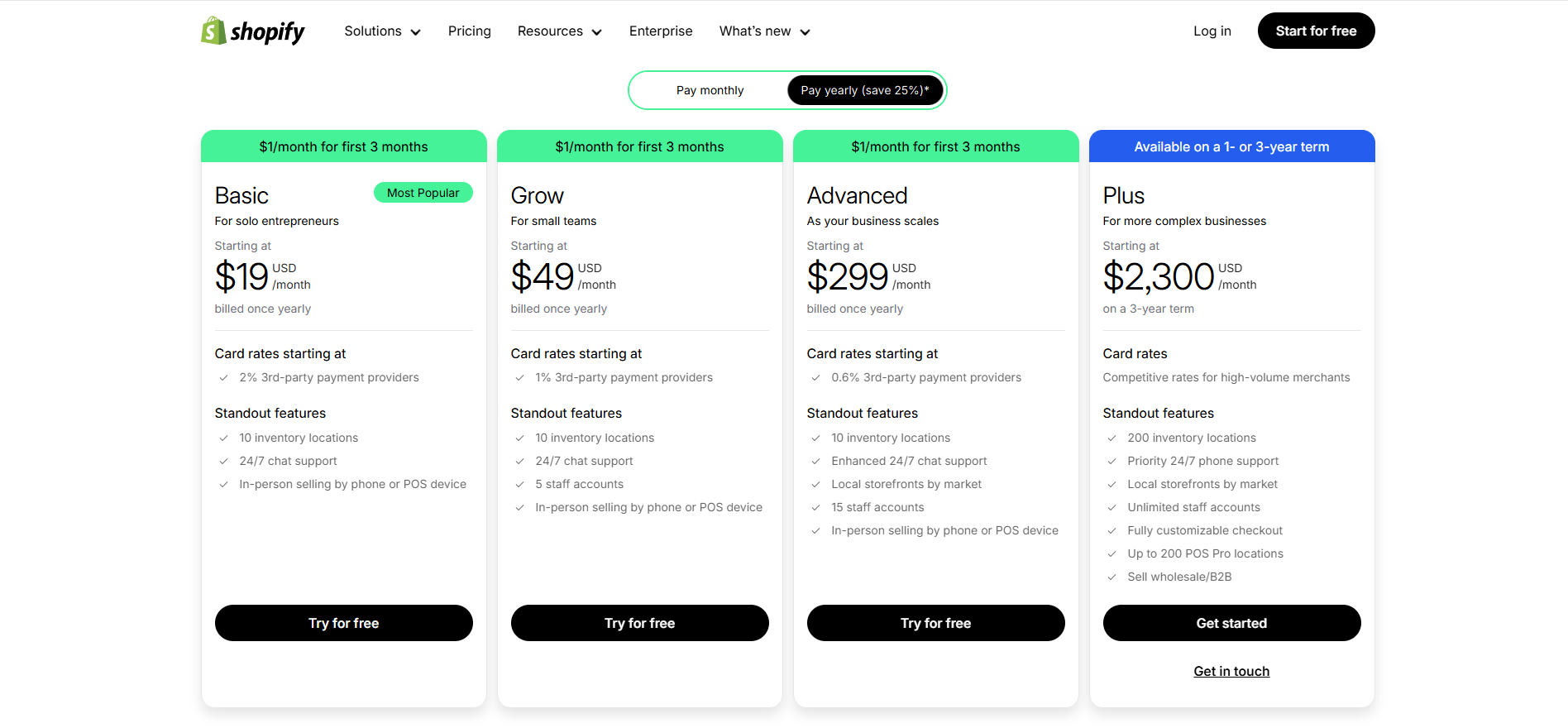
Free trial length: 3 days.
Integrated sales channels: Online store, in-person, social media, email, marketplaces, online search, B2B, and more.
Mobile app: Yes.
Native POS: Yes.
G2 rating: 4.4/5
2. WooCommerce: Best for cost-effective stores
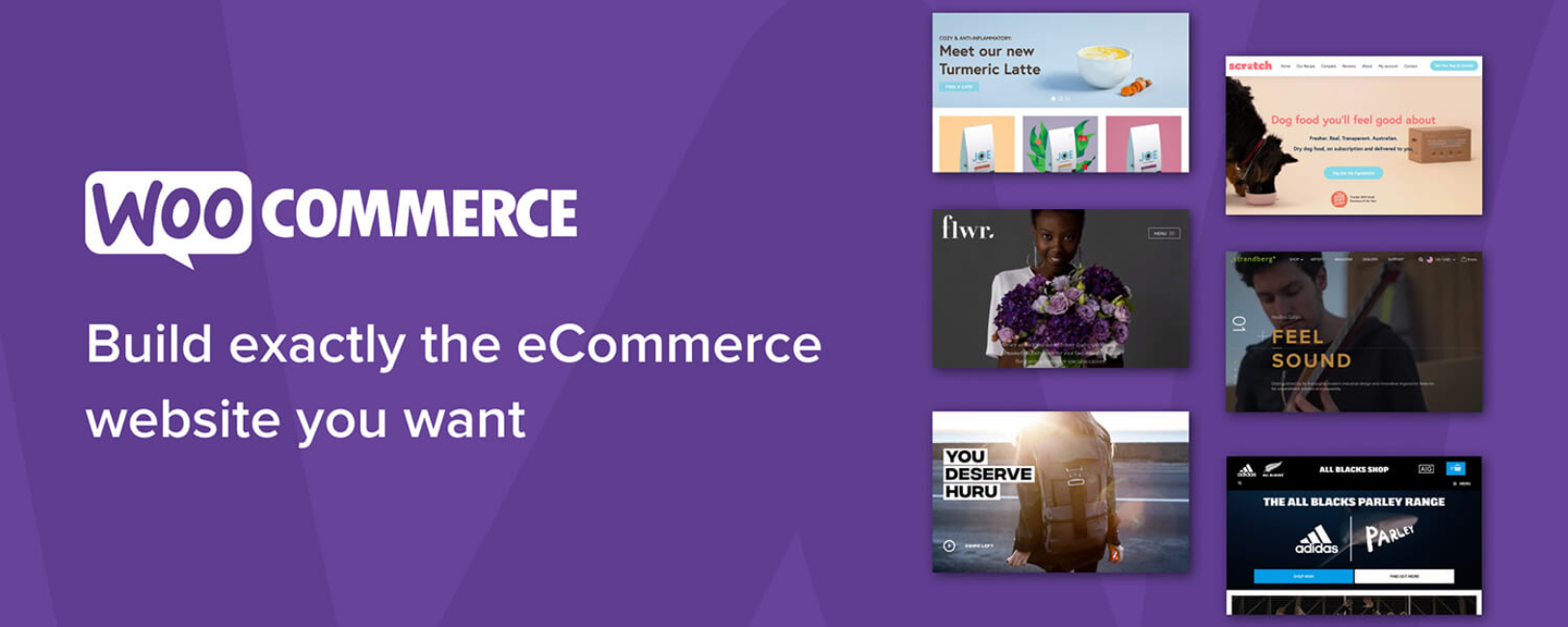
WooCommerce is WordPress’s online selling platform. Initially created as a platform for blogging, it has transformed into a website builder tailored for small businesses, offering the option to integrate WooCommerce for online sales capabilities. WooCommerce is open-source, allowing for extensive customization if you possess the technical skills to design and code websites.
WooCommerce is one of the most cost-effective eCommerce platforms for small businesses, offering flexibility and scalability as a free WordPress plugin. It’s ideal for entrepreneurs who want full control over their store, from product management to SEO and marketing.
Key highlights:
- Cost-effective: Free WordPress plugin with no tiered pricing, features don’t scale with cost.
- Product management: Handles unlimited products (digital or physical) with advanced inventory control.
- SEO advantage: Deep WordPress integration ensures strong SEO performance and ranking potential.
- Marketing tools: Compatible with a wide range of plugins for email, social media, and customer engagement.
- Customization & scalability: Open-source nature allows full design control, with thousands of themes and extensions to scale as your business grows.
Price: Free (not including essential ecommerce features like hosting, domain registration, SSL, shipping services, and payment processing).
Free trial length: n/a.
Integrated sales channels: Online store, in-person, online search, marketplaces, social media.
Mobile app: Yes (limited functionality).
Native POS: Yes.
G2 rating: 4.4/5
3. Squarespace: Best for design-focused brands

Squarespace presents itself as a user-friendly alternative for small businesses, allowing them to build online stores using its templates, intuitive drag-and-drop features, and dependable performance. Initially conceived as a website builder rather than a dedicated e-commerce platform, Squarespace has since incorporated tools to support online sellers. As one of the popular eCommerce platforms for small businesses, it is ideal for fashion, wellness, and premium products, combining beautiful templates with built-in tools for both product and service-based businesses.
Key highlights:
- Drag-and-drop setup: Professional templates and no coding required for easy store creation.
- Evolved for eCommerce: Originally a website builder, now fully supports online stores.
- Built-in business tools: Includes scheduling, email marketing, social media integrations, and maps for physical locations.
- Subscription support: Allows recurring payments, making it suitable for membership or subscription models.
- Visually-driven design: Perfect for showcasing high-quality images and creating a premium brand feel.
Price:
- Personal: $10/month
- Business: $14/month.
- Commerce Basic: $17/month.
- Commerce Advanced: $30/month.
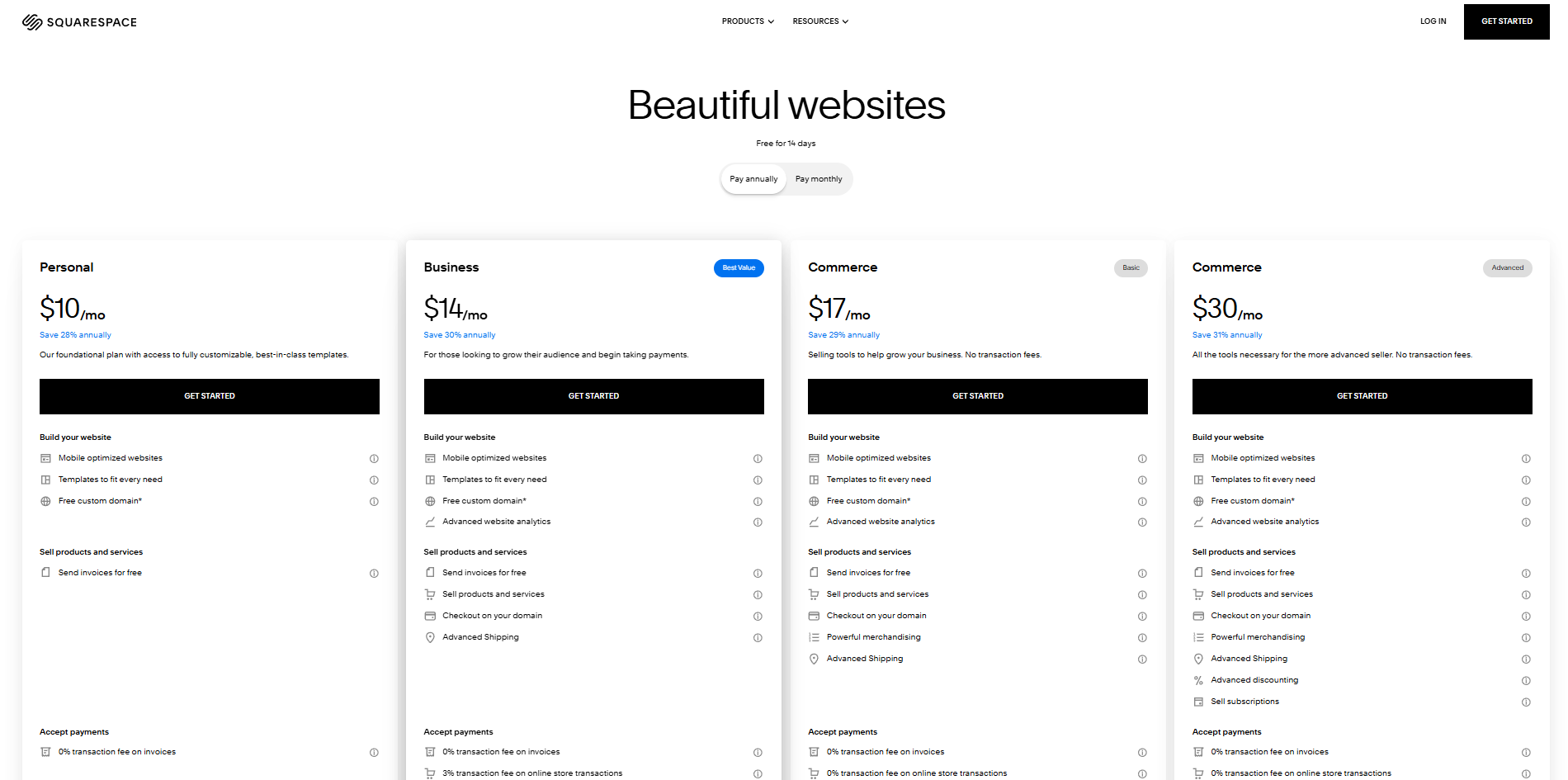
Free trial length: 14 days, with a one-time extension.
Integrated sales channels: Online store, in-person, social media, marketplaces.
Mobile app: Yes.
Native POS: Yes (mobile app).
G2 rating: 4.5/5.
4. Wix: Best for creative freedom
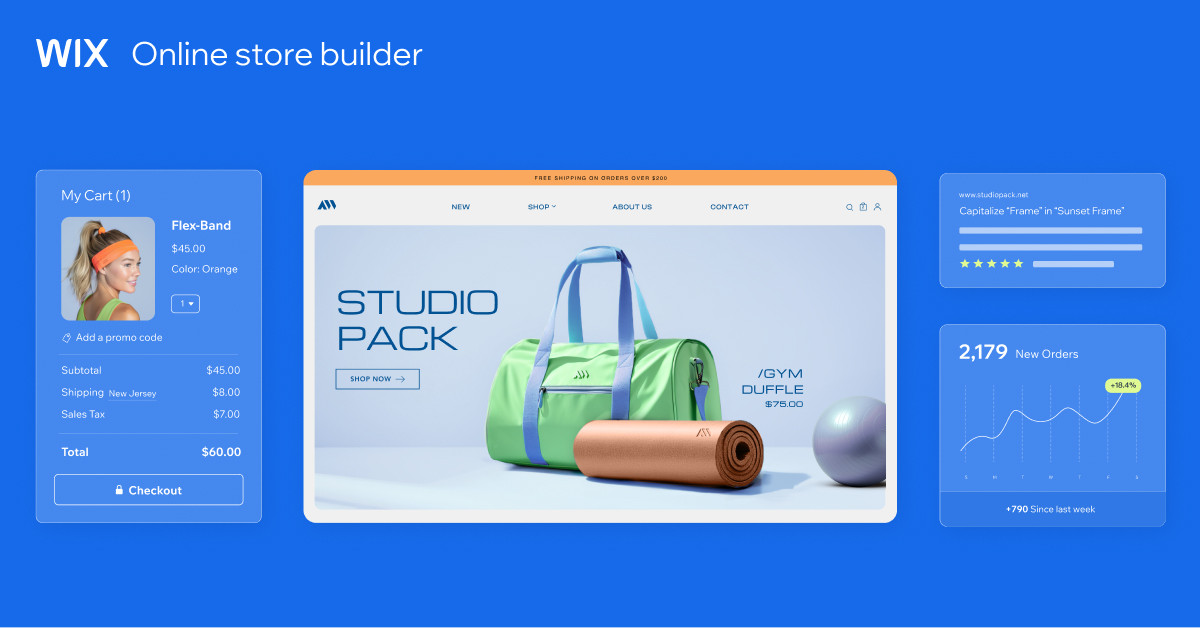
Wix has a small-business website builder with ecommerce-specific features. If you pay for Wix, you get online store tools like order tracking, taking payments online, selling in more places, and reminding people about carts they left. You also need a paid plan to see your store’s important numbers.
For how your store looks, there are over 500 ready-made designs, and you can change them easily by dragging and dropping things. Wix also lets you charge customers regularly for subscriptions and use other companies to ship products directly to buyers and stands out as one of the most flexible eCommerce platforms for small businesses.
Key highlights:
- Creative flexibility: Drag-and-drop editor lets you place text, images, and videos anywhere without coding.
- Customizable templates: Hundreds of professionally designed, mobile-ready themes to match your brand.
- E-commerce ready: Supports product sales, bookings, and digital goods with secure checkout options.
- Built-in marketing tools: Includes email campaigns, SEO settings, and social media integrations.
- App market: Thousands of third-party apps to extend store functionality as your business grows.
Price:
- Light: $17/month.
- Core: $29/month.
- Business: $39/month.
- Business Elite: $159/month.
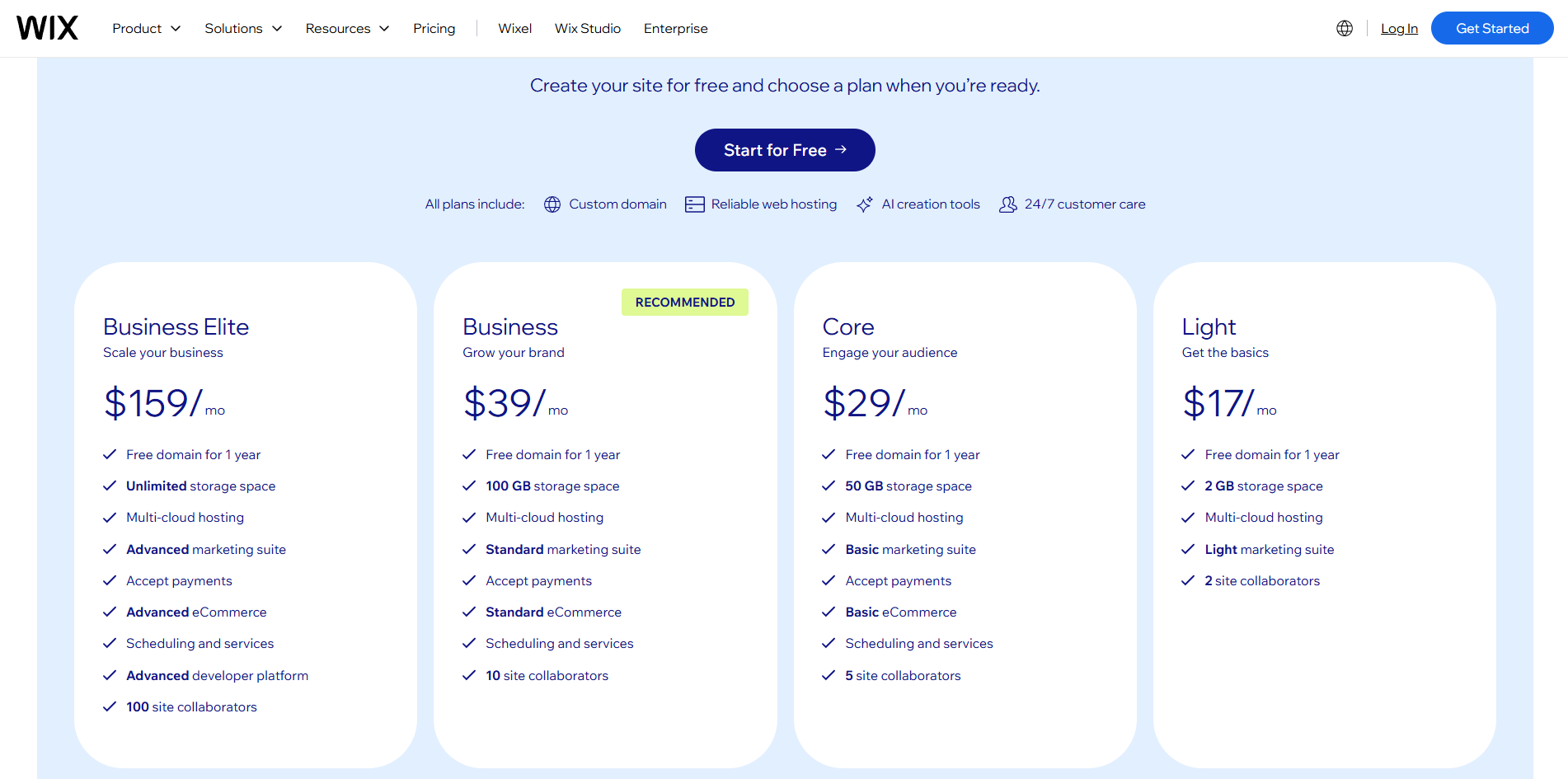
Free trial length: Limited free version available.
Integrated sales channels: Online store, in-person, social media, marketplaces, branded apps.
Mobile app: Yes (limited functionality).
Native POS: Yes.
G2 rating: 4.2/5.
5. Square Online: Best for brick-and-mortar shops
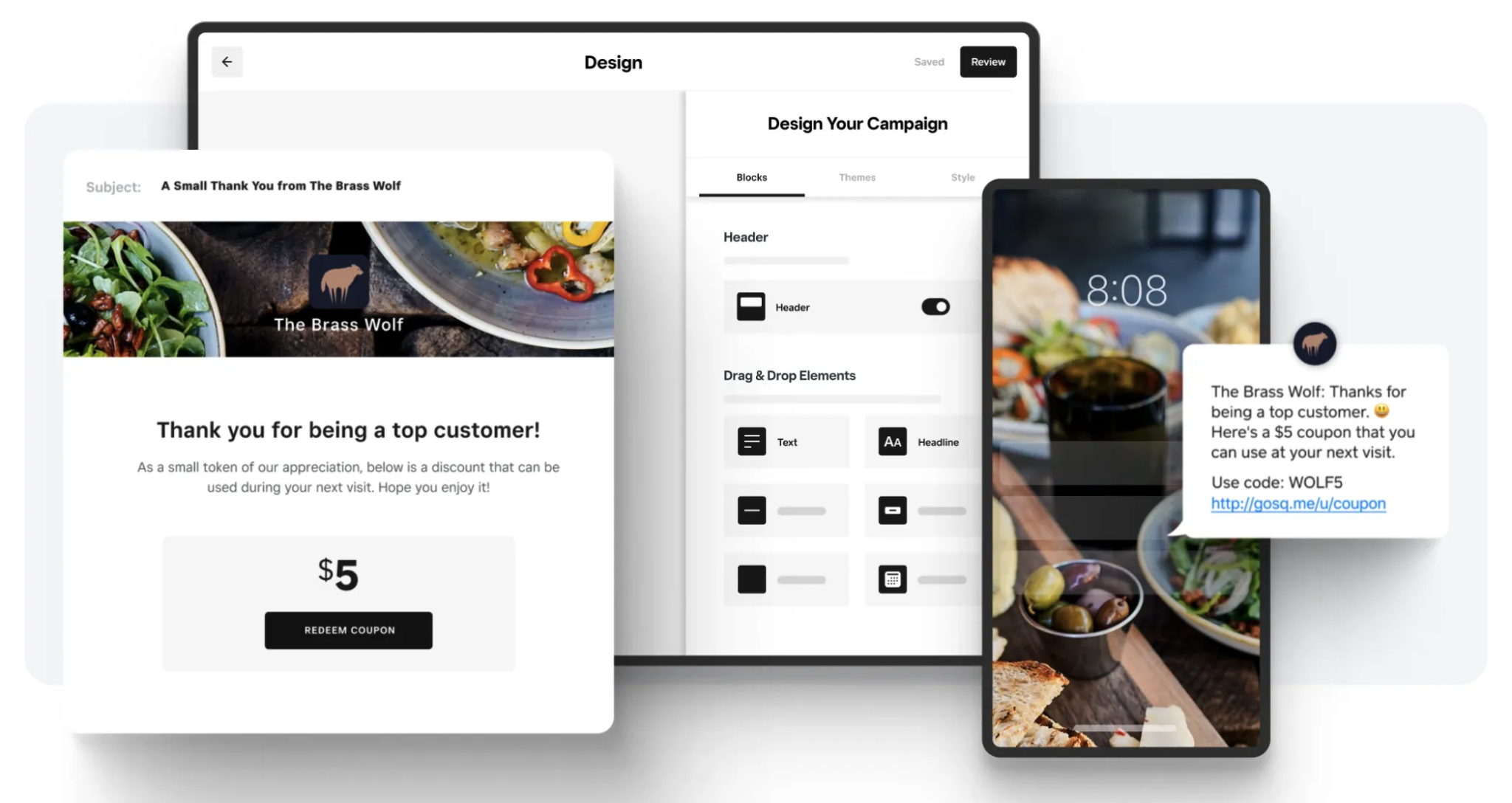
Square Online is a website builder designed for small businesses such as shops and restaurants, featuring customizable templates. It is renowned for its beautiful, modern, and mobile-responsive templates. Users can easily select a professionally designed layout and customize it without needing any coding skill. For entrepreneurs comparing eCommerce platforms for small businesses, Square Online stands out with built-in payment processing and competitive transaction rates.
Key highlights:
- Seamless payment integration: Directly connects with Square Payments for smooth online and offline transactions.
- Tailored templates: Ready-made designs for shops, restaurants, and service-based businesses.
- Low barrier to entry: Free plan available, making it accessible for startups and small retailers.
- Brick-and-mortar sync: Unified management of sales, inventory, and customer data across channels.
- Affordable growth: Competitive transaction rates and built-in tools help keep costs manageable while scaling.
Price:
- Square Free: Free with limited ecommerce features.
- Square Plus: $49/month.
- Square Premium: $149/ month.
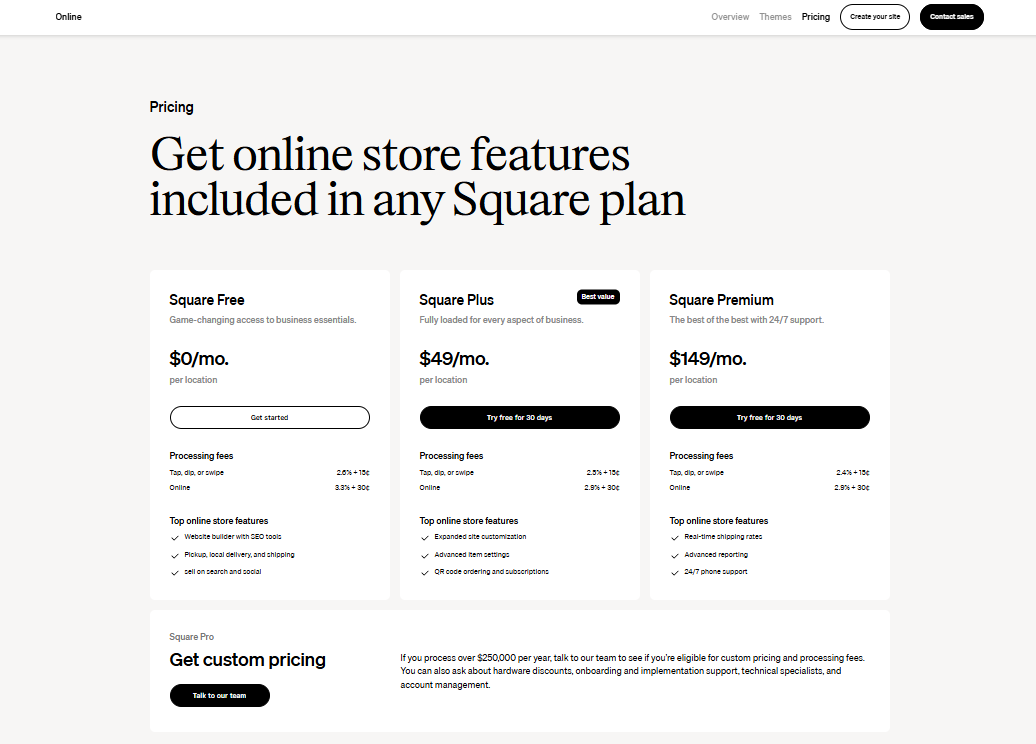
Free trial length: n/a.
Integrated sales channels: Online store, in-person, online search, social media.
Mobile app: Yes.
Native POS: Yes.
G2 rating: 4.2/5.
6. BigCommerce: Best for large-scale growth
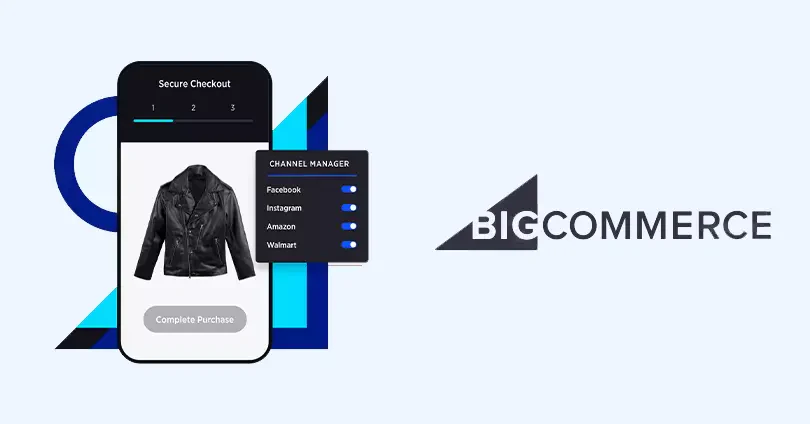
BigCommerce is an e-commerce platform designed primarily for large businesses, corporations, and enterprise-level operations. However, expanding small businesses can also take advantage of its international selling capabilities and tools for multichannel sales across social media and third-party marketplaces. This makes it stand out among eCommerce platforms for small businesses, as it combines enterprise-level features with the flexibility needed for growing brands to scale securely and efficiently.
Key highlights:
- Scalability & performance: Supports thousands of products, heavy traffic, and complex operations without slowing down.
- Advanced management: Detailed inventory tracking, automation, and bulk editing for smooth order fulfillment.
- Multi-channel selling: Sell across Amazon, eBay, Facebook, Instagram, and in-store from one dashboard.
- Customization & integrations: Flexible APIs and advanced tools for tailored checkout, ERP, CRM, or PIM connections.
- Global growth ready: Multi-currency, multi-language, and international shipping support for cross-border expansion.
Price:
- Standard: $29/month.
- Plus: $79/month.
- Pro: $299/month.
- Enterprise: Custom pricing and terms.
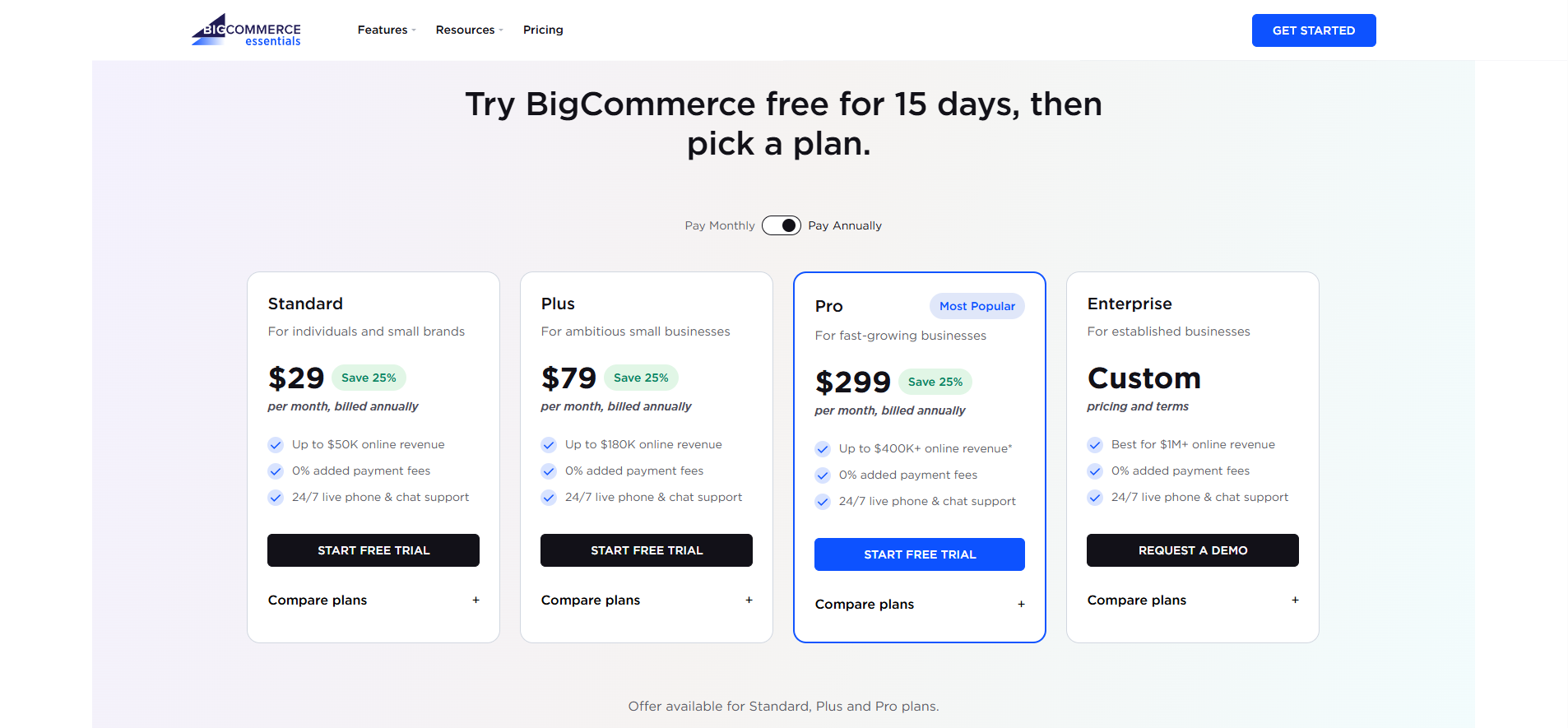
Free trial length: 15 days.
Integrated sales channels: Online store, in-person, social media, marketplaces, comparison shopping engines.
Mobile app: Yes (some features Android-only).
Native POS: No.
G2 rating: 4.2/5.
Final Thoughts
Choosing the best ecommerce platform for your small business depends on your needs and goals. Whether your priorities lie in budget, features, or other factors, you can find a fitting choice. It’s crucial to choose a platform that is user-friendly and capable of scaling alongside your business. Take the time to explore various options by signing up for free trials to help you make an informed decision when comparing the best eCommerce platforms for small businesses.



Pingback: Business Startup Costs Business Owners Need to Know